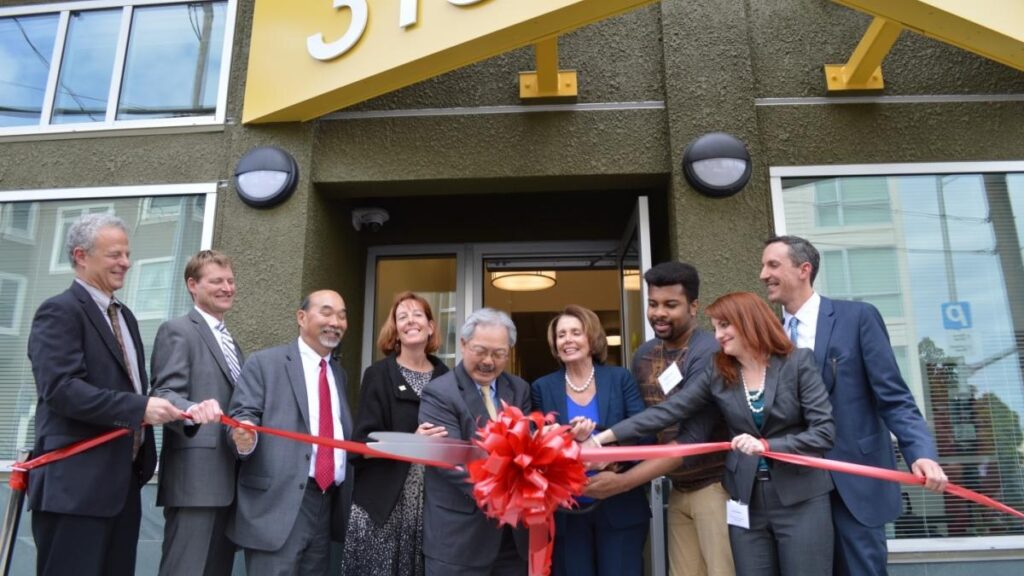When former Mayor London Breed decided she wanted to get rid of a district attorney who beat her hand-picked candidate, she helped create a false media narrative, that San Francisco was crime ridden and that criminals were walking free.
Her approach helped oust Chesa Boudin—but in the process, deeply damaged her own city and helped undermine her re-election.
Sup. Matt Dorsey is pulling from the same playbook as he seeks to win approval for legislation that would ban any new city money for supportive housing that isn’t “drug free.”
Dorsey is, in effect, arguing that existing supportive housing is riddled with drugs, that people are dying of overdoses, and that the only solution is to mandate abstinence and sobriety for all new supportive housing residents.

Even his language, that current housing is “drug tolerant,” suggests, in an almost Trumpian way, that everyone in supportive housing is using drugs, and that the city thinks that’s just fine.
Some truth here: There are, indeed, issues with some supportive housing, as is not surprising given the population the city is trying to help. But many of the nonprofits that manage supportive housing are doing a good job, and a lot of that housing is well run, safe, and not packed with dangerous addicts.
Ten years ago, permanent supportive housing was radically underfunded. But since then, the nonprofits have made the case for reasonable staffing, have learned from mistakes, and are making huge strides.
Dorsey is undermining all that work to make it appear that the only solution is to cut all funding for anything that isn’t sober housing. I know the nonprofits get city money, but at a certain point they need to stand up and say: Dorsey is wrong.
Thanks to a state Legislature that is owned by the real-estate industry, San Francisco has only a very limited ability to protect small local independent businesses. The state won’t allow commercial rent control, or mandate right of return for businesses evicted for demolitions.
But in 2024, Sup. Aaron Peskin came up with a concept that is well within the city’s authority: If you evict a legacy business, you can’t rent that property out to anyone else without a conditional use permit.
That doesn’t stop the displacement of legacy businesses, but it adds an additional expense and hassle, which might discourage some greedy landlords from displacing shops that have been a part of the community for decades.
He proposed it as interim controls, which are now about to expire. Sup. Connie Chan wants to make the legislation permanent, and the Planning Commission will hear the plan Thursday/16.
In the end, this will go to the Board of Supes—and it’s a very different board than the one that approved Peskin’s interim controls. But as small businesses fight back against Mayor Daniel Lurie’s upzoning plan, it’s going to hard for any of the supes to oppose protections for small business.
Unless, of course, the real estate industry gets to them.
The Planning Commission meeting starts at noon.
The Police Commission will be meeting in closed session Tuesday/14 and Wednesday/15 to interview candidates for the job of police chief. The announcement, and the term “candidates,” suggests that unlike the Planning Commission decision to hire a new director without any sort of national search (the commissioners just rubber stamped Lurie’s choice) there might actually be a reasonable chance that the commission is looking at a range of candidates.
We know some current SFPD members are applying. If the commission is taking two days for interviews, there may be some outsiders, too.
The commission in theory sends three candidates to the mayor, who makes the final choice. In practice, under this administration, Lurie likely already has his thumb on the scale.




